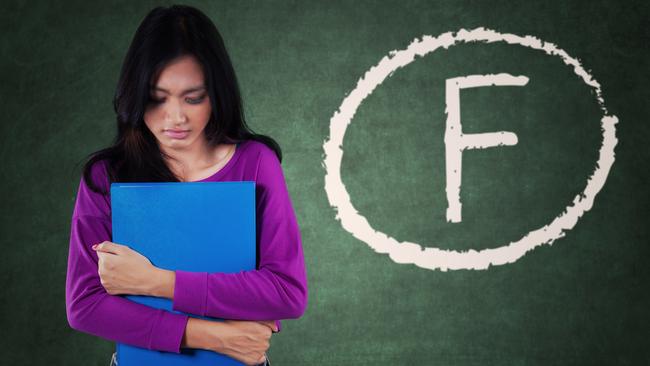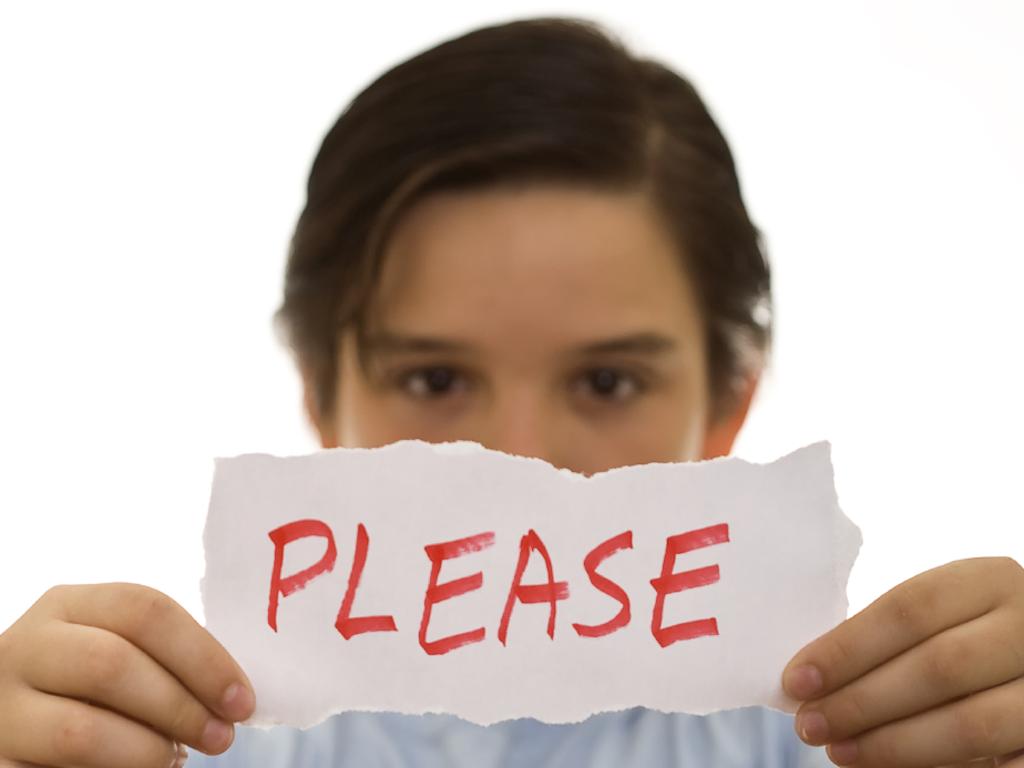Teacher woes create student underclass
Overworked, poorly trained teachers have produced a growing underclass of struggling students.

Overworked and poorly trained teachers have produced a growing underclass of struggling students, a damning inquiry has found.
Too many students are reaching year 9 with a primary school-level reading ability – lagging five years of learning behind their high-performing classmates – and one in three pupils is skipping 10 per cent of classes, the Productivity Commission reveals in a new report, released Wednesday.
More scrutiny of how schools spend their money, and a focus on student welfare, are recommended to boost academic results.
The report estimates that an above-average teacher with a smaller class of 15 students would lift the lifelong income of every student by $35,000 a year, compared to an average teacher with a standard class of 25 students.
Governments should spell out how they will “remove low-value tasks, duplicate tasks and regulatory inefficiencies’’ to give teachers more time for face-to-face instruction, the report states.
The report does not suggest which tasks might be taken from teachers, but playground duty, school pick-up supervision, photocopying and chasing student permission slips are duties teacher aides might carry out.
Online lessons from skilled teachers are suggested as a way of ensuring all students have access to teachers qualified in the hard-to-staff subjects of maths, science and languages.
Improving the quality of university degrees in teaching “should be a permanent priority’’, the Productivity Commission states in its interim report on the National School Reform Agreement.
“A large number of students do not meet minimum standards – often year after year,” the report states. “Around one-third of students who do not meet minimum literacy and numeracy standards in their early years of schooling do not meet minimum standards in later school years.’’
The report reveals more students are shunning school, with nearly one in three students skipping at least 10 per cent of lessons.
Kids from poor families, with uneducated parents, a disability or First Nations students are the most likely to fall further behind with each year of school.
The Productivity Commission warned that 5 per cent of all students failed to meet the national minimum standard for literacy last year, while 4 per cent failed to meet numeracy standards, based on the National Assessment Program, Literacy and Numeracy (NAPLAN) tests.
By year 9, students whose parents had dropped out of high school were reading at a level five years behind their top-performing classmates, and had fallen four years behind in maths.
Nearly one in three students skipped at least 10 per cent of lessons last year – up from 22 per cent in 2015. Aboriginal and Torres Strait Islander students were twice as likely to miss school, with 59 per cent missing at least 10 per cent of lesson time.

Productivity Commissioner Natalie Siegel-Brown said Australia “persistently falls short of the ideal of an equitable education for all students’’.
“We must do more to prevent students from falling behind and help those who are struggling to catch up with their peers,’’ she said. “Every year, between 5 and 9 per cent of Australian students do not meet year-level expectations in either literacy or numeracy.’’
Ms Siegel-Brown said teachers need “more time to teach’’.
“At the moment our teachers are overly burdened with low-value tasks and spend less time teaching than their international counterparts,’’ she said. “Reducing teacher workload would also increase the time they have to prepare for lessons and undertake professional development.’’
The Productivity Commission report says Australian teachers spend more time on non-teaching tasks than their international counterparts.
Australian teachers work 45 hours a week, on average during school terms, but spend only 40 per cent of their time in face-to-face lessons, with the rest of the time planning lessons, marking exams and assignments, liaising with colleagues and parents or supervising extra-curricular activities for students.
“Teacher workload has increased over time,’’ the report states. “Many teachers cite heavy workload as a reason for wanting to leave the profession.’’
The report shows that among teachers who plan to quit, 71 per cent blamed a heavy workload but just 30 per cent blamed low pay and 26 per cent cited student behaviour.
The Productivity Commission will investigate the costs and benefits of halving the time required for mid-career professionals to retrain as teachers, by replacing a two-year masters degree with one-year graduate diplomas in teaching. Another solution would be to provide scholarships or paid work to help lawyers, tradies or IT experts transition to teaching.
The report also notes “it is not clear how teaching assistants and other support staff are being used in schools’’, with duties varying from one-on-one instruction to students to helping with administrative tasks.
Student mental health is a focus of the report, which says federal, state and territory governments should measure student wellbeing under its next National School Reform Agreement. Noting that 14 per cent of adolescents used mental health services through Medicare last year, the report warns that many teachers need training to teach troubled teens.
It found some children suffering trauma, be it from mental illness, domestic violence or homelessness, but were being punished instead of helped at school. “Many children’s experiences of trauma can cause them to behave disruptively at school,’’ the report states.
“Sometimes teachers can respond with disciplinary actions which can culminate in suspension or expulsion, where they are not aware a child’s behaviour is communicating trauma.
“They are not adequately supported to engage more positively with children exhibiting challenging behaviours.’’
The Productivity Commission calls for more transparency in how schools spend billions of dollars in extra funding meant to target disadvantaged students.
It calls for school-level financial data to be published.






To join the conversation, please log in. Don't have an account? Register
Join the conversation, you are commenting as Logout